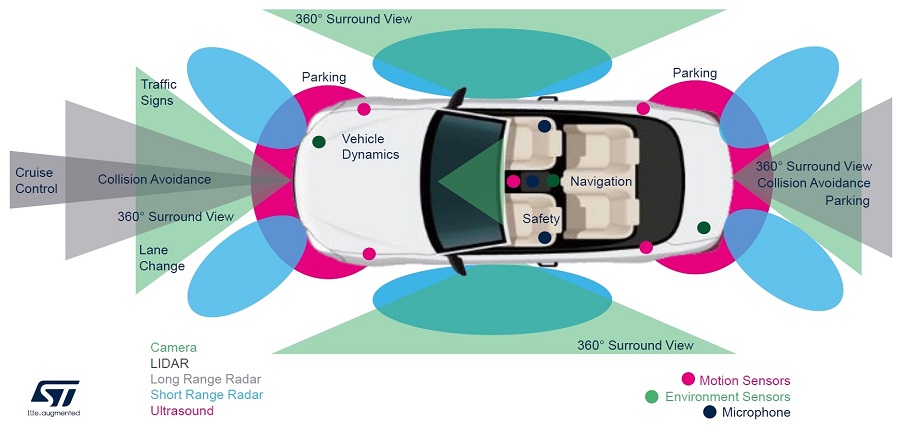Automotive sensors are essential for a variety of functions, including engine management, braking, and safety features. When these sensors fail, it can lead to a number of problems, including decreased fuel efficiency, decreased performance, and even safety hazards.
There are a number of reasons why automotive sensors might fail. Some of the most common causes include:
- Debris or dirt buildup: Sensors that are exposed to the elements can become dirty or clogged with debris. This can interfere with the sensor’s ability to function properly.
- Wiring problems: The wiring that connects the sensor to the vehicle’s computer can become damaged or corroded. This can prevent the sensor from sending accurate readings to the computer.
- Sensor failure: Sensors can wear out over time and eventually fail. This is especially true for sensors that are subjected to a lot of wear and tear, such as the ABS sensors.
- Software problems: The software that controls the sensors can malfunction. This can cause the sensors to send incorrect readings to the computer.
If you suspect that one of your automotive sensors is not working, there are a few things you can do to troubleshoot the problem. First, you can check the sensor for signs of damage or debris buildup. If you see any problems, you can try cleaning the sensor or replacing it. If the sensor appears to be in good condition, you can check the wiring that connects it to the vehicle’s computer. If the wiring is damaged, you will need to have it repaired or replaced.
If you have checked the sensor and the wiring and you are still having problems, you may need to have the vehicle’s computer scanned for diagnostic trouble codes. These codes can help you identify the specific sensor that is not working. Once you have identified the faulty sensor, you can replace it or have it repaired.
In some cases, it may be possible to reset the sensor. This will usually clear any codes that are stored in the computer and allow the sensor to start working properly again. However, if the sensor is physically damaged, it will need to be replaced.
If you are not comfortable troubleshooting the problem yourself, you can take your vehicle to a qualified mechanic. They will be able to diagnose the problem and repair or replace the faulty sensor.
Here are some tips to help you prevent automotive sensors from failing:
- Keep the sensors clean and free of debris.
- Inspect the wiring regularly for damage or corrosion.
- Have the vehicle’s computer scanned for diagnostic trouble codes on a regular basis.
- Replace sensors that are showing signs of wear or damage.
By following these tips, you can help to ensure that your automotive sensors are working properly and that your vehicle is operating safely.
Additional Information
In addition to the causes and solutions mentioned above, there are a few other things you should know about automotive sensors.
- Types of automotive sensors: There are many different types of automotive sensors, each of which is designed to measure a specific parameter. Some of the most common types of automotive sensors include:
- Engine sensors: These sensors measure various parameters of the engine, such as the air intake temperature, the engine coolant temperature, and the engine oil pressure.
- Brake sensors: These sensors measure the brake fluid pressure and the brake pad wear.
- Safety sensors: These sensors include the airbag sensors, the seatbelt sensors, and the rollover sensors.
- Cost of replacing automotive sensors: The cost of replacing an automotive sensor can vary depending on the type of sensor and the make and model of the vehicle. In general, however, the cost of replacing a sensor is relatively affordable.
- DIY or professional installation: In some cases, it may be possible to replace an automotive sensor yourself. However, if you are not comfortable working on your vehicle, it is best to have the sensor replaced by a qualified mechanic.
I hope this information is helpful. Please let me know if you have any other questions.thumb_upthumb_downuploadGoogle itmore_vert
